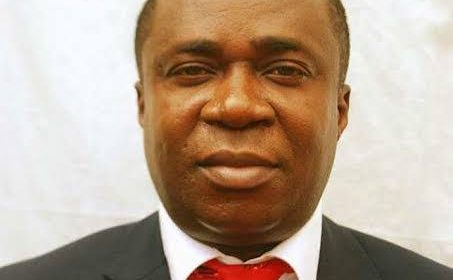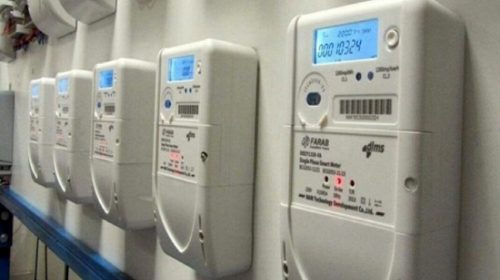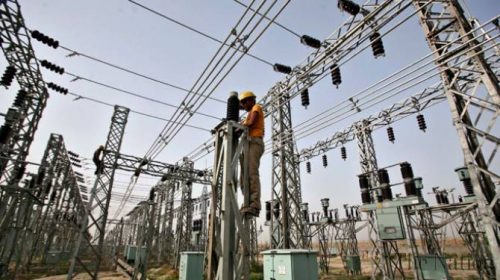Naira Stability: CBN Inject $39.9bn Into Market In 2018

Between January and December last year, the Central Bank of Nigeria injected about $39.9bn to defend the nation’s currency in the foreign exchange market.
The analysis of foreign exchange injection into the economy contained in the fourth quarter economic report of the CBN revealed that $39.9bn was used to stabilise the naira.
CBN usually intervenes in the foreign exchange market by injecting liquidity about three times a week.
The intervention is provided to authorised dealers in the wholesale segment of the market, as well as other sectors of the economy such as agriculture, manufacturing and Small and Medium Enterprises segment.
Customers that required foreign exchange for invisibles such as tuition fees, medical payments and Basic Travel Allowance, among others, are also allocated funds from the intervention.
An analysis of the intervention showed that the apex bank injected about $10.97bn into the foreign exchange market in the first quarter of 2018.
During the second quarter, the figure went down by $3.09bn to $7.89bn.
In the third quarter of 2018, the CBN intervention rose by $3.99bn from the second quarter figure of $7.89bn to $11.88bn
For the fourth quarter, an analysis of the economic report showed that the apex bank injected $9.18bn into the foreign exchange market.
A breakdown of the first quarter intervention of $10.97bn showed that the apex bank supplied $1.58bn through the sales of foreign exchange to the interbank market, while the sums of $740m, $2.55bn and $6.11bn were supplied to swaps, Bureau De Change operators and forward contracts, respectively.
The $7.89bn intervention made by the apex bank in the second quarter was done through the interbank market where $1.8bn was supplied, swaps $1.04bn, BDCs $1.5bn and forward contracts $3.47bn.
In the third quarter of last year, the CBN’s intervention of $11.88bn was made thus: Interbank $2.16bn, swaps $1.23bn, BDCs $2.41bn and forward contracts $3.24bn.
For the fourth quarter of 2018, the apex bank provided foreign exchange liquidity into the interbank market with the sum of $820m, swaps $130m, BDCs $2.98bn and forward contracts $3.15bn.
The report read in part, “A total of $9.18bn was sold by the CBN to authorised dealers in the fourth quarter of 2018.
“This represents 16.1 per cent decline below the level in the third quarter of 2018, but was 80.6 per cent above the level in the corresponding period of 2017.
“The development, relative to the preceding quarter, reflected the decline in interbank sales and swaps transactions in the review quarter.
“Of the total, foreign exchange forwards disbursed at maturity was $3.15bn (34.3 per cent); sales to BDCs, $2.98bn (32.5 per cent); investors’ and exporters’ window, $2.09bn (22.8 per cent); interbank sales, $820m (8.7 per cent); and swaps transactions, $0.13bn (1.5 per cent).
“However, the average exchange rate of the naira vis-à-vis the United States dollar at the interbank segment depreciated by 0.2 per cent to N306.70/US$, relative to the level at end-September 2018.
“Similarly, at the BDC segment, the average exchange rate, depreciated by 0.9 per cent and 0.01 per cent below the levels in the preceding quarter and the corresponding period of 2017 to N362.42/$.
“At the investors’ and exporters’ window segment, the average exchange rate stood at N364.27/$, representing 0.5 per cent and one per cent depreciation relative to the levels in the preceding quarter and the corresponding period of 2017, respectively.
“Consequently, the premium between the average interbank and BDC rates widened by 0.8 percentage points in the review quarter, from 18.2 percentage points at the end of the fourth quarter of 2018, but the spread between the average exchange rates at the investors’ and exporters’ window and the BDC segment narrowed further to 0.5 per cent from 0.9 per cent at the end of the preceding quarter.”
An analysis of the report showed that foreign exchange inflow into the economy increased by 2.8 per cent to $27.64bn as of the end of December last year.
The increase in foreign exchange inflow was as a result of the 12.3 per cent increase in inflow through the CBN.
Oil sector receipts, which accounted for $3.02bn, showed a decrease of 14.5 per cent below the level at the end of the preceding quarter.
The report stated that with $11.49bn as of December 31 last year, non-public sector inflow rose by 22.5 per cent above the third quarter levels.
A further analysis of the report showed that autonomous inflow of foreign exchange was put at $13.13bn, which fell 6.1 per cent below the levels at the end of the preceding quarter.
Speaking on the foreign exchange policy of the CBN, the Head, Department of Finance, Nasarawa State University, Prof. Uche Uwaleke, called on the apex bank to explore innovative ways to support domestic industries beyond the use of forex policies.
He said, “There is no doubt that the CBN’s forex policies have helped the growth of local industries in Nigeria. Notable among these is the restriction of access to official forex placed on 41 imported items.
“This measure was not only in support of the Federal Government’s import substitution strategy, but it was also a demand- management strategy, which helped to conserve scarce forex, especially during the period of oil price slump.
“Today, thanks to that restrictive measure, a number of products, which were hitherto not produced here such as toothpicks, are now being manufactured locally.
“The introduction of the investors’ and exporters’ window, on the back of crude oil price, recovery, has equally helped to stabilise the exchange rate, facilitating raw materials imports for local firms.
“That said, the CBN should continue to explore innovative ways to support domestic industries beyond the use of forex policies
punch







Leave a Reply